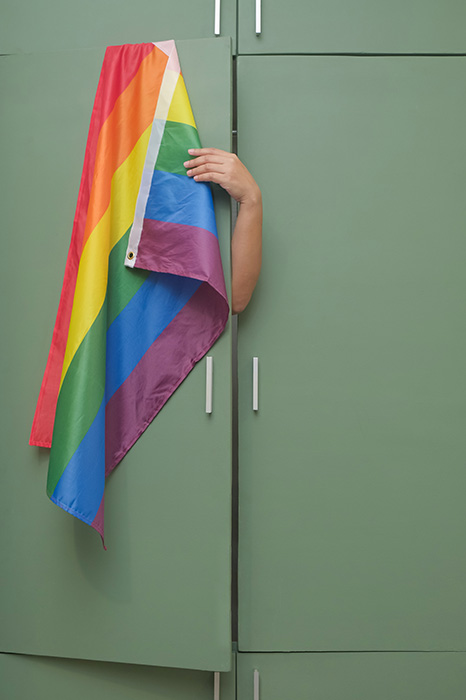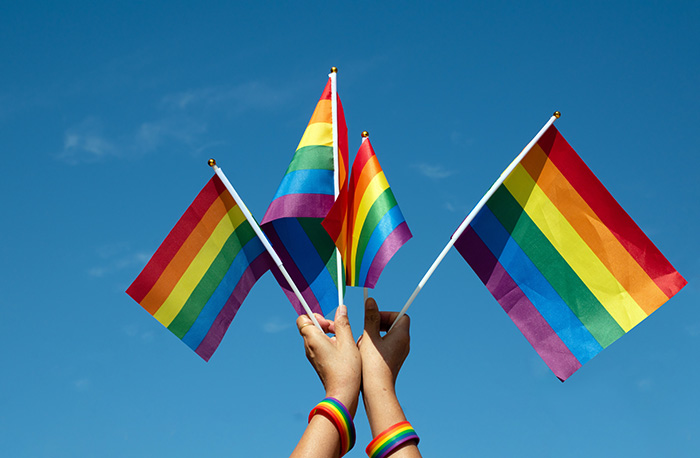What to say and things to avoid when someone comes out to you
Riyan Portugez, a psychologist known on social media as "Your Millennial Psychologist," took her time to come out to her mother. When she finally did, she wasn't comfortable saying, "Ma, I'm a lesbian," yet, and instead introduced her girlfriend. Her mother smiled and later told her, "Okay lang, 'nak. Alam ko naman eh. Inaantay lang kita."
When Miss Trans Global 2020 and queer advocate Mela Habijan came out as gay, her father was also accepting. "He assured me that no matter what, I am his child and the love that [he has for me] will never change," she told PhilSTAR L!fe.
Her dad welcomed her with open arms again when she came out as trans. "Kung magiging mabuting tao ka bilang babae, mabuhay ka," he told her.
But not all coming out stories go as smoothly. Before she had that conversation with her parents, Mela shared that coming out was difficult.
"It's one of the hardest things that we have to deal with because there's always fear attached to our lives as LGBTQIA+ individuals because of how society looks at us," she shared. "Telling the world that we are different and we are proudly part of the community is fear-inducing, anxiety-inducing because of the prejudice when people look at us differently."
The Philippines is considered one of the most LGBTQ-friendly countries in Asia. It even ranked 36th out of 175 countries in terms of social acceptance for the queer community in a 2021 report by the University of California, Los Angeles School of Law Williams Institute. Despite this, there's a lack of legislation at the national level protecting the rights of LGBTQ+ Filipinos. The SOGIESC Equality Bill, which aims to provide equal protection for all—regardless of whether they're LGBTQ+ or not—still languishes in Congress.

Coming out is a deeply personal and courageous act. For many in the LGBTQ+ community, it's liberating—but it can also be a vulnerable experience, especially when you don't know how the person you're sharing your true self with will react.
If someone does feel safe enough to come out to you, how do you create a safe space for your queer friend to break down their walls? What should you say to them so they won't experience prejudice or judgment?
The way others respond to someone coming out matters deeply. Lakan Umali, an award-winning writer and English professor at the University of the Philippines Diliman, told L!fe that how you respond somehow shows them how the world might treat them.
"Will the world treat them with distrust? Or will the world treat them as if they're strange or otherworldly? Will the world just treat them as they are?" she said.
Using inclusive and respectful language—such as the correct pronouns or chosen names—is a basic yet essential form of support. Misgendering, deadnaming, or using outdated or offensive terms can make people feel invalidated and unsafe. On the other hand, affirming language fosters a sense of belonging and dignity.
Respond with gratitude
As coming out is not an easy process, acknowledging the courage it took and the trust placed in you with gratitude is one way to respond.
"When someone comes out to me, I always say thank you. Thank you for trusting me with your truth... So gratitude is one beautiful way to celebrate that celebratory moment," Habijan said.
The queer advocate adds that you can tell that LGBTQ+ individual that they are safe with you.
"When you tell someone that you're safe with me, there is an assurance that no matter what, there's no judgment," she added.
It's also important to acknowledge their courage.
"It's really hard for you to come out sa ganitong klaseng judgmental na mundo. So, 'pag sinabi mo sa kanila, 'Uy, thank you, alam ko mahirap yan. Pero thank you kasi, pinagkatiwalaan mo ko. Sa'kin mo sinabe.' [At] the same time tell them how proud you are sa pagsasabi niya ng ganoon," Portuguez said, adding that validating words can help.
"Huwag mong kunin 'yung spotlight at the same time you have to validate their feelings. Pwede mong sabihin na, 'I'm here for you no matter what. Ako pa rin naman yung kaibigan mo.'"
Give a warm, consensual hug

While words are important in responding with love and acceptance, body language often speaks just as loudly, sometimes even louder.
"You can ask the person if they want a hug or if you could hold their hand to show support if they're feeling still a little shocked and concerned," Umali shared.
Avoid backhanded compliments
As emotionally charged and vulnerable as it is, coming out is a moment that should be met with empathy, respect, and sincerity. But too often, well-meaning people respond with something that sounds supportive on the surface but is actually laced with judgment.
“You’re gay? Wow, you don’t look like it!” and “Well, you're still beautiful, even if you’re trans," are just a few examples of backhanded compliments someone coming out of the closet hears.
Hence, Habijan said that people should be careful with such remarks.
"So pag sinabi mo kasi, 'matagal na namin alam na bakla ka,' may pagka-sarcastic kasi yung delivery," she said. Instead, you can say, "We've known all this time and we're okay with it."
Habijan added that coming out is "not about learning what to say, but learning how to say it."
"Intentional dapat 'yung pagkasabi. Intentional dapat 'yung pag-comfort, 'yung pag-celebrate. Kasi 'pag hindi purposive at intentional, performative lang siya."
Portuguez echoed this, saying that how you talk to someone coming out matters.
"Siguro sa mga makakarinig ng ganoon, although nakakainis na may 'kahit' o may 'pero,' tingnan din natin kung paano dineliver," she said as advice to LGBTQ+ members receiving backhanded compliments.
"Kasi may mga tao kapag wala silang background ng SOGIESC training, maririnig mo naman kung judgmental yung sinasabi. [May] iba naman na may 'kahit' may 'pero,' pero 'yung pagkakadeliver niya malumanay at sinusubukan niya maging connected sayo."
Additionally, you shouldn't ask that queer person if they're "sure" about their sexuality, Portuguez added. Coming out isn't just a casual confession; it’s a declaration of truth, of something they've pondered over for a significant period of time.

When you don't know what to say
If it's the first time someone has come out to you and you're lost for words, the psychologist told L!fe that it's okay to tell that person, "I don't know what to say."
“'I don't know what to say. Pero siguro kung meron man akong gusto sabihin, ako pa rin naman to. I mean, syempre hinahangaan kita... Nagpapasalamat ako na ako yung sinabihan mo. Pero bukod doon wala akong iba pang masabi. Siguro, kailangan ko ito i-proseso.'”
Portuguez explained that this may lead to the person coming out to help you process the new information.
Ask them how they're feeling
It would be more supportive to ask someone coming out how they're feeling, Umali said.
"Because [coming out] can be very stressful, it can be a heavy opportunity. Even if they are confident or comfortable enough to come out to you, it doesn't erase the anxiety they might feel that you might react negatively."
"I wish more people would understand about the vulnerability of coming out," Umali continued. "The fear of coming out is not because queer people doubt that they're loved, but [the] fear comes from the fact that queer people understand that both love and disgust or love and hate can coexist," Umali said.
Habijan also echoed the same, emphasizing that a positive perception towards queerness will pave the way for LGBTQ+ people to not be afraid to come out.
"What if our view of queerness has always been positive? Then, no one needs to come out because the natural will always follow," she said.


